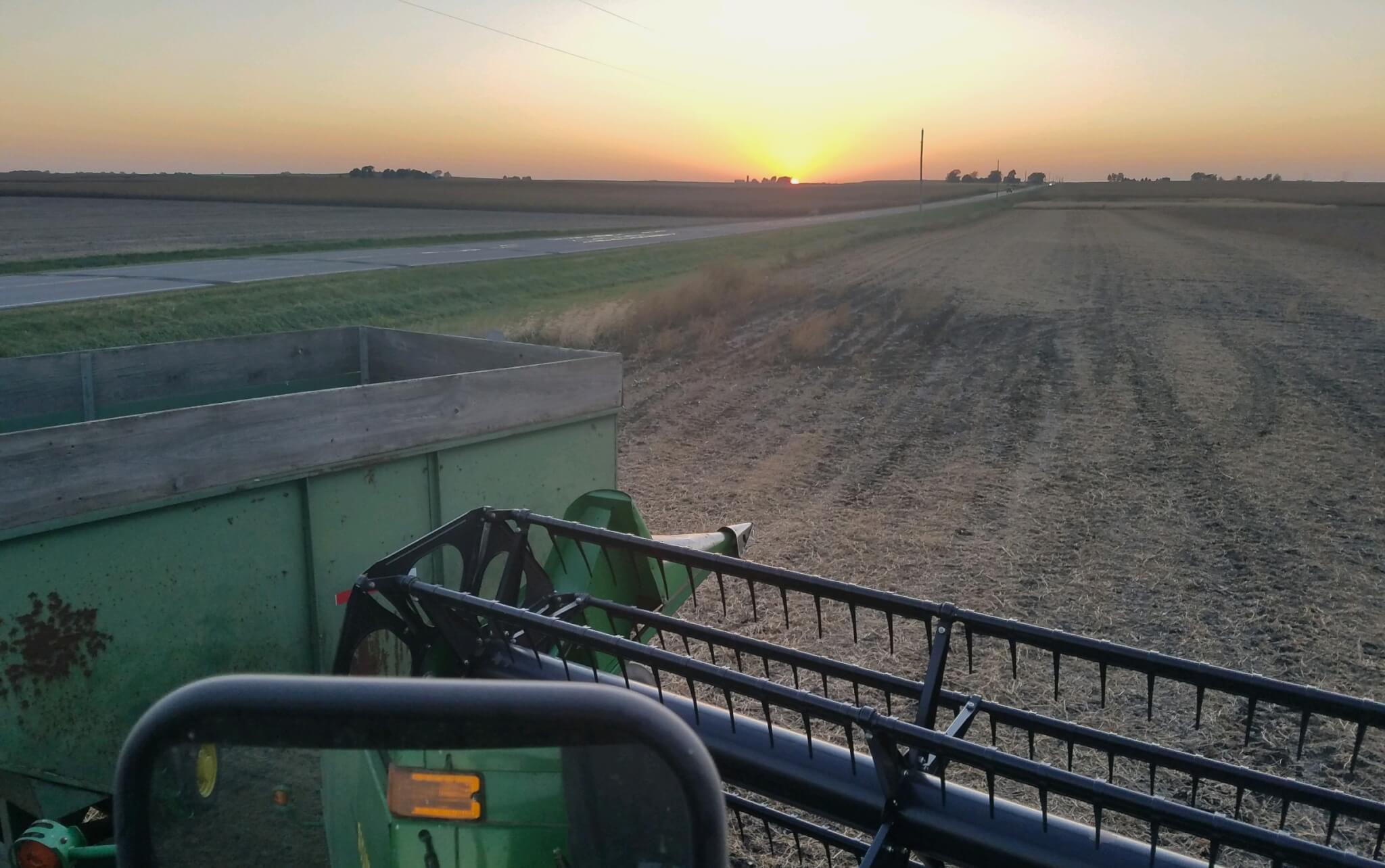
Photo by Aaron Lehman
Farmers in Iowa and around the country are still waiting on a final decision on the Trump Administration’s biofuel policy. The controversy over exemptions that undercut Midwest farmers’ ethanol production in favor of oil companies that got started over the summer is still simmering and unresolved.
The Environmental Protection Agency’s public comment period over biofuels policy ended Nov. 29 with more than 11,700 comments submitted.
The EPA opened a public comment period to gather insight on how to handle reallocating ethanol gallon lost to small refinery exemptions (SREs), back into their renewable fuel volume obligations (RVO).
It followed a replacement plan released by the EPA that many biofuels and farming groups found underwhelming.
Now, the EPA has targeted Dec. 20 as the date to release its final 2020 RVO numbers, nearly three weeks after the initial RFS deadline of Nov. 30.
[inline-ad id=”2″]
9 Days Until Potential Release
EPA Administrator Andrew Wheeler has taken heat this year for continually refusing to replace all gallons of lost ethanol back into the nation’s fuel supply. Even Iowa’s Republican senators, Chuck Grassley and Joni Ernst, have pushed back on Wheeler.
“Lost jobs and plant closures have been a result of Environmental Protection Agency (EPA) undermining the integrity of the Renewable Fuel Standard (RFS),” said Sen. Ernst, who voted to confirm Andrew Wheeler. “I’ve continued to press EPA Administrator Wheeler to uphold the importance of this law and ensure 15 billion gallons of ethanol means 15 billion gallons of ethanol, and I’m going to continue to hold Wheeler’s feet to the fire. Iowa farmers and families depend on a strong, robust RFS.”
[inline-ad id=”1″]
President Donald Trump has been criticized, too, after promising to be the “most pro-ethanol administration” if elected to the White House.
But since he took office, 85 oil refinery exemptions were granted, blocking billions of gallons of ethanol from the fuel supply, further driving down commodity prices and putting more stress on the agricultural community.
“The congressional intent is indisputable and unambiguous, and the law is clear,” said Geoff Cooper, president and CEO of the Renewable Fuels Association, in a statement. “Unfortunately, the EPA has forsaken the law in recent years by failing to ensure the congressionally directed renewable fuel volume requirements are enforced. EPA issued 85 retroactive small refinery exemptions for the 2016-2018 compliance years, undercutting the statutory renewable fuel volumes by a total of 4.04 billion gallons.”
[inline-ad id=”0″]
Back And Forth
The field of Democratic candidates for president have also been paying attention to the issue, and many have promised to undo actions by the Trump Administration.
“They’ve got the chance to fix it,” Kevin Ross, National Corn Growers Association vice president, said. “The fact is we can do better moving forward and I think they know that, but they need to listen to what was said and agree and go back and fulfill the promises that were made.”
The Trump Administration seems to believe that partial waivers could be a solution to the market destruction caused by the 85 waivers over the last three years, but farm-state officials and farming groups are hoping to see more than that.
[signup_form]
The EPA has now sent its 2020 blending mandate to the White House for review.
During the wait-time for an announcement, RIN prices have stayed pretty stagnant, putting even more emphasis on the potential December announcement.
“It is an undeniable fact that the surge in SREs has caused demand loss and economic hardship for U.S. ethanol producers,” Cooper wrote. “At least 20 ethanol plants have been temporarily idled or permanently closed since early 2018 when EPA began to massively expand the volume of SREs.”
By Josh Cook
Posted 12/11/19

Iowa Republicans make outlawing gay marriage key 2024 campaign priority
Iowa Republicans have made outlawing gay marriage a key goal in their 2024 party platform. During the Iowa GOP’s 2024 state convention on Saturday,...

Department of Justice says Iowa immigration law violates US Constitution
If Iowa doesn’t suspend the enforcement of its new immigration law by May 7, the state could face a federal lawsuit, according to the Des Moines...

Rushing: Iowa State president said the quiet part out loud
I want to thank Iowa State University President Wendy Wintersteen for doing us all a favor by finally saying the quiet part out loud: all the...

Iowa sets aside almost $180 million for year two of voucher program
Iowa has committed nearly $180 million in taxpayer funds to support private school tuition in the 2024-25 school year, which is almost $50 million...

Kalbach: Immediate action needed on corporate ag pollution
Iowa agriculture has undergone substantial changes over the past 40 years. We see it all around us. Rather than crops and livestock being raised on...

VIDEO: Jochum calls Gov. Reynolds’ summer meal program a ‘hunger game’
Iowa Gov. Reynolds announced a competitive $900,000 grant program to feed Iowa children over the summer, months after she declined $29 million in...




